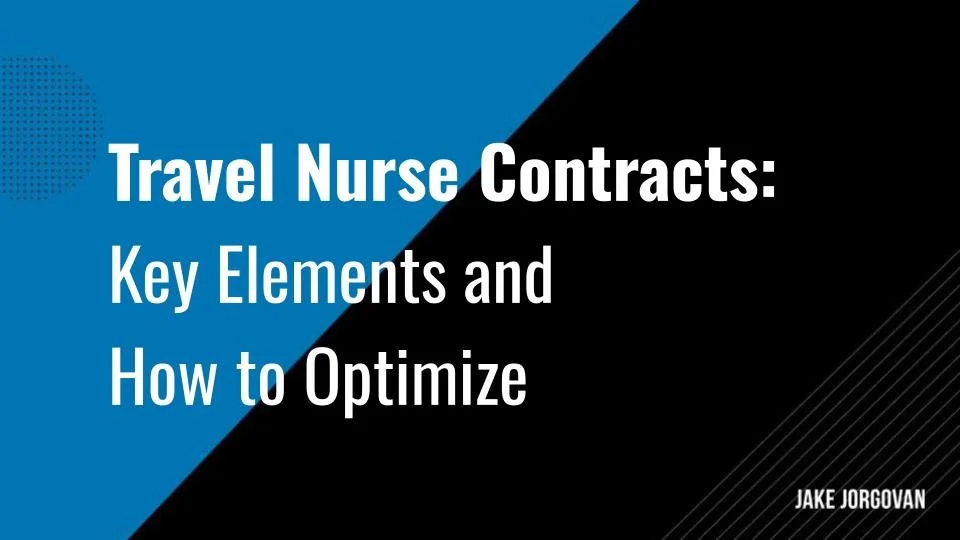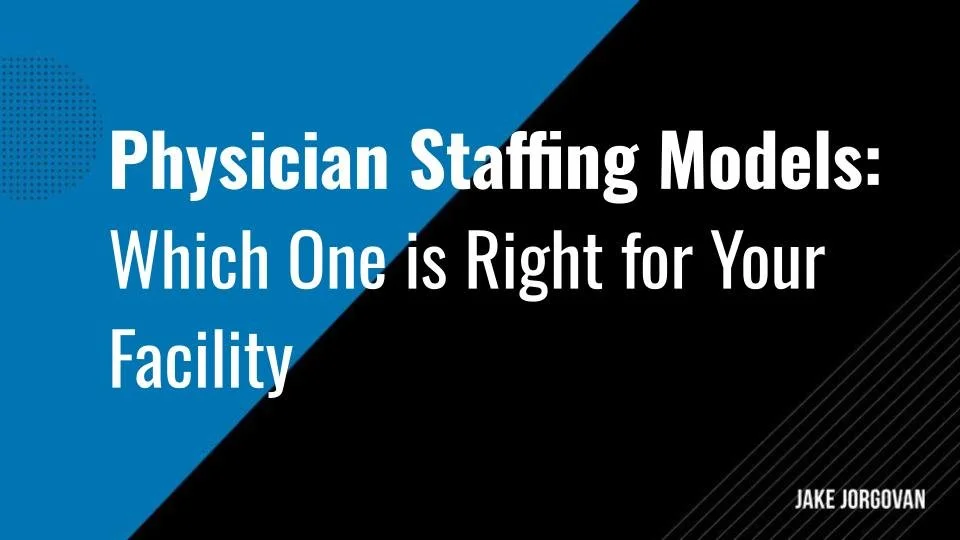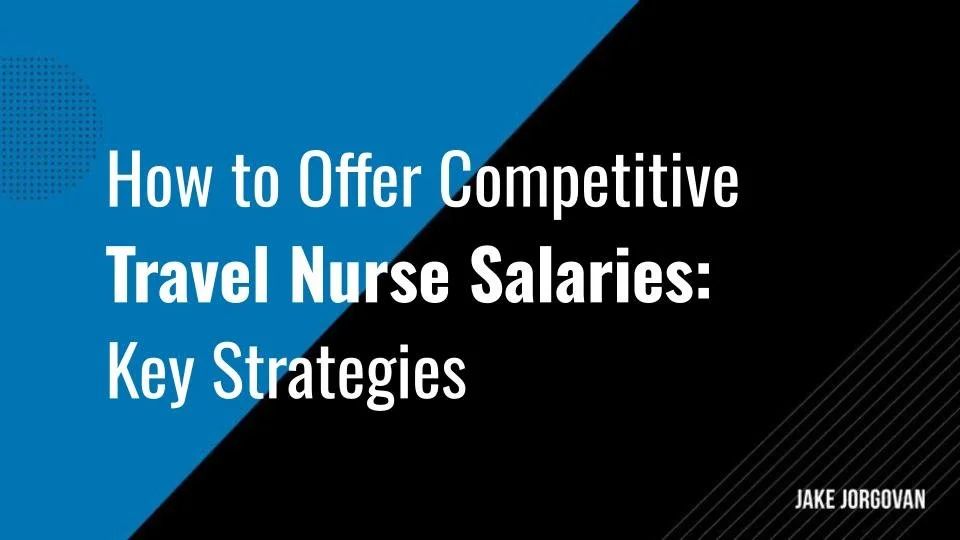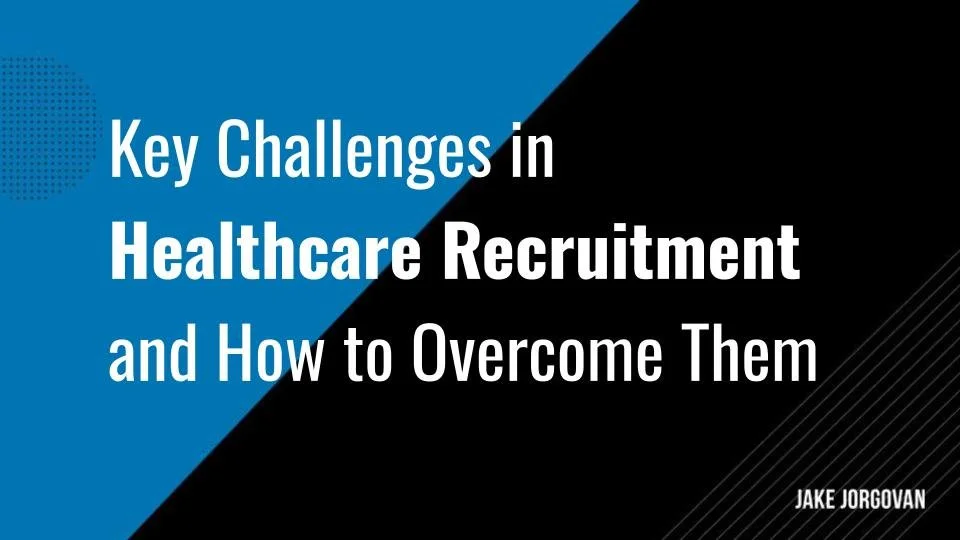How to Evaluate the Best Healthcare RPO Providers: 5 Essential Steps
Choosing the right Healthcare Recruitment Processes Outsourcing (RPO) provider is not a walk in the park because you have lots of options. The good news is that these companies work.
In fact, the global healthcare outsourcing market is projected to reach $312 billion by 2025, highlighting the growing reliance on external expertise.
An RPO provider impacts the quality of hires and overall patient care, but the process can be complex and overwhelming.
You’re on the right page, though. This guide will break down 5 essential steps to help you evaluate the best options.
Follow these steps to make sure your provider meets your specific needs.
The Value of Healthcare RPO Providers
RPO has a ton of benefits for healthcare organizations, like those shown below:
Healthcare-specific RPO providers deliver significant value to specialized business owners. These providers understand the unique demands and regulations of the healthcare industry, which is what you need for effective recruitment.
Remember: Working with a general RPO provider might not offer the same expertise and nuanced understanding.
Specialized RPO providers have a deep network of healthcare professionals. This ensures access to a broad pool of qualified candidates, reducing time-to-hire and improving the quality of hires. The global healthcare staffing market is projected to reach USD 62.77 billion by 2030, which shows the growing demand for the right staffing solutions.
RPO providers also understand the importance of credentialing and compliance, which help every candidate meet industry standards and regulatory requirements.
Advanced technology is another advantage. Healthcare-specific RPO providers use tools tailored to the industry. These include applicant tracking systems (ATS) for healthcare-specific data, compliance checks, and credential verification. This specialization streamlines the recruitment process, making it more efficient and effective.
Cost efficiency is a significant benefit. These providers offer scalable solutions that can adapt to your needs, whether you need to fill a few positions or manage a large-scale hiring surge. This flexibility allows for better budget management and allocating resources where they are needed most. In fact, some sources claim that RPOs can reduce costs by 40%, while others simply state that the cost per hire is cut by 20%.
Retention rates improve when working with specialized RPO providers. They understand the healthcare work environment and culture, leading to better matches between candidates and employers. This results in higher job satisfaction and lower turnover rates. And you need both to maintain continuity and quality in patient care, especially considering that hospital turnover rates are about 21%.
Expertise in niche roles is another key value. Specialized RPO providers can recruit for hard-to-fill positions, such as specialized nurses or medical technicians, which general recruiters might struggle with. This expertise ensures you find the right talent for even the most challenging roles.
Key Trends in Healthcare RPO
The healthcare industry is facing increasing pressure to fill critical roles while maintaining compliance and efficiency. As a result, Recruitment Process Outsourcing (RPO) providers are adopting new strategies and technologies to meet evolving demands.
1. AI-Powered Recruitment
Artificial intelligence is streamlining candidate sourcing, screening, and engagement, reducing time-to-hire, and improving match quality. For healthcare organizations, this means faster access to highly qualified professionals, even for hard-to-fill roles.
“According to the World Health Organization (WHO), there is a projected global shortage of 18 million healthcare workers by 2030. Traditional hiring methods, which often involve manual resume screening, lengthy interview processes, and subjective decision-making, can no longer keep up with the demand. This is where AI recruitment steps in.” (Vansh Nath, AI in Healthcare Recruitment: Finding the Best Talent Faster)
2. Increased Focus on Compliance and Credentialing
Regulatory requirements are becoming more stringent, which is pushing RPO providers to implement stronger compliance and credentialing processes. This helps healthcare organizations avoid legal risks and confirm that candidates meet licensing and certification standards before onboarding.
3. Expansion of Workforce Flexibility
The demand for temporary, contract, and travel healthcare professionals continues to rise. RPO providers are offering more adaptable staffing models so that healthcare organizations can scale their workforce efficiently in response to fluctuating patient loads.
4. Data-Driven Recruitment Strategies
Advanced analytics allow RPO providers to refine talent acquisition by predicting workforce needs and optimizing hiring decisions. This allows healthcare organizations to proactively address talent shortages and reduce turnover.
5. Enhanced Candidate Experience
With competition for top healthcare talent intensifying, RPO providers are prioritizing a seamless candidate journey through mobile-friendly applications, automated interview scheduling, and personalized communication. This improves engagement and increases offer acceptance rates.
5 Steps for Evaluating Healthcare RPO Providers
Now that you’ve seen both the benefits of hiring a good RPO provider and the industry challenges, let’s see how you can leverage both.
1) Assess Provider’s Industry Expertise and Track Record
Evaluate a healthcare RPO provider’s industry expertise and track record to ensure they can meet your specific needs. The graphic below shows an overview of what a successful RPO provider’s process might look like, resulting in 450 fires from 2,500 candidates.
This step lays the groundwork for a successful partnership, giving you confidence in their ability to deliver high-quality candidates efficiently. To assess their expertise and track record effectively, follow these steps:
Review case studies and client lists: Look for detailed case studies that showcase the provider's ability to handle similar organizations and staffing needs. A diverse client list within the healthcare sector indicates versatility and experience.
Check for specialized knowledge: Confirm that the provider understands healthcare-specific roles and requirements. In one case, a healthcare services organization partnered with an RPO provider to fill hyper-competitive IT positions, leading to over $150,000 in cost savings and staffing its IT department with high-level tech talent. Ask about their experience with positions ranging from general practitioners to specialized surgeons and how they approach sourcing for these roles.
Analyze their success metrics: Request concrete data on key performance indicators such as fill rates, time-to-hire, and retention rates. Comparing these metrics to industry standards helps gauge their effectiveness.
Evaluate industry recognition: Investigate whether the provider has received awards or recognition from respected industry bodies. This can be a strong indicator of their reputation and commitment to excellence.
Conduct thorough reference checks: Speak with their current and former clients to get a firsthand account of their experiences. Focus on how well the provider meets deadlines, the quality of candidates provided, and their responsiveness to any issues.
Insider Tip: We recommend attending industry events or webinars where the provider presents or participates. This offers a unique opportunity to see their expertise in action and to network with other professionals who have worked with them. It provides insights beyond what can be captured in case studies and testimonials.
2) Evaluate Technology and Tools for Recruitment Efficiency
The technology and tools used in healthcare recruitment impact the efficiency and quality of hiring immensely. Advanced recruiting tools, like those shown in the image below, streamline processes and enhance the candidate experience.
To ensure you’re partnering with a provider who leverages the best technology, follow these steps:
When evaluating a healthcare RPO provider, start by assessing their applicant tracking system (ATS). It should be designed specifically for healthcare recruitment, supporting features like credential verification, compliance tracking, and integration with other HR systems you use.
Next, review their use of artificial intelligence (AI) in recruitment. AI-driven candidate matching, predictive analytics for hiring trends, and chatbots for initial candidate engagement can streamline the hiring process and improve efficiency. The global AI in healthcare market is projected to reach $208.2 billion by 2030, which reflects its growing significance in the industry.
Take a close look at their sourcing tools to determine which platforms and databases they use to find candidates. Ensure they have access to specialized job boards and professional networks tailored to healthcare professionals.
Also, examine their candidate experience tools to understand how they handle communication and engagement. Features like automated interview scheduling, mobile-friendly applications, and real-time status updates can significantly enhance the candidate experience.
Finally, analyze their reporting capabilities to confirm that they provide detailed analytics and performance metrics. You should have access to insights on candidate pipeline, time-to-hire, diversity, and other key recruitment indicators.
Insider Tip: It's important to request a live demo of their technology stack. Seeing the tools in action provides a clearer picture of their capabilities and usability. It also allows you to ask specific questions tailored to your needs.
3) Review Compliance with Healthcare Regulations and Standards
In healthcare recruitment, compliance with regulations and standards is non-negotiable. You need to be sure that your RPO provider adheres to these in order to maintain quality and avoid legal issues. Here’s how to review a provider’s compliance:
Verify certifications and accreditations: Check if the provider holds relevant certifications, such as ISO or healthcare-specific accreditations. These indicate adherence to industry standards and best practices.
Examine their compliance processes: Ask about their methods for ensuring compliance with healthcare regulations, such as HIPAA, OSHA (more shown below), and state-specific laws. Detailed processes and regular audits should be in place. HIPAA violations can result in penalties of up to $50,000 per breach, emphasizing the importance of robust compliance processes.
Here are the key healthcare compliance laws to follow:
Review training programs: Ensure they provide continuous training for their staff on compliance-related matters. This should include updates on new regulations and refresher courses on existing ones.
Check their data security measures: Evaluate how they protect sensitive candidate and client information. This includes secure data storage, encryption, and protocols for handling data breaches.
Assess their track record: Look for past compliance issues or legal challenges. A clean record and proactive measures to maintain compliance are strong indicators of a reliable provider.
Insider Tip: We suggest requesting RPO providers’ internal compliance audit reports. These documents provide an in-depth look at their compliance practices and reveal how effectively they manage and resolve issues.
4) Consider the Scalability and Flexibility of Their Services
Scalability and flexibility in healthcare recruitment are essential for meeting fluctuating staffing needs and adapting to industry changes. Partnering with an RPO provider who excels in these areas ensures your organization can respond effectively to various demands.
Here’s how to ensure if your RPO allows you to scale:
When evaluating a healthcare RPO provider, start by assessing their ability to scale. They should be capable of handling both large-scale recruitment drives and smaller, specialized searches. The provider must demonstrate the capacity to ramp up efforts quickly in response to sudden increases in demand.
Next, evaluate their flexibility in services. Check if they offer customizable solutions tailored to your specific needs. This includes a mix of permanent, temporary, and contract staffing options, as well as services that can be adjusted as your requirements evolve. The U.S. is expected to face a shortage of 100,000 healthcare workers by 2028, underscoring the importance of adaptable staffing strategies to meet evolving demands.
Also, review their resource allocation to understand how they distribute resources across different projects. A provider with a robust network of recruiters and a flexible pool of candidates can adapt more effectively to changing needs.
Additionally, check their response times and examine their track record for filling positions promptly. A good response time is within 24 hours, but the average time to hire is now 43 days – you’ll sometimes need faster hires. Speed and efficiency when addressing urgent recruitment needs are good indicators of their flexibility.
Finally, analyze their client support structure to ensure they offer dedicated account managers or support teams who understand your unique requirements. This personalized support allows them to adapt services as your needs change.
Insider Tip: We recommend engaging in a trial project with providers. A smaller-scale engagement allows you to assess their scalability and flexibility firsthand. This practical evaluation helps you make an informed decision before committing to a long-term partnership.
5) Check Client Testimonials and References for Satisfaction Levels
Client testimonials and references are powerful tools in evaluating the effectiveness of a healthcare RPO provider. They offer firsthand insights into the provider’s performance, reliability, and quality of service.
Here’s the catch.
Knowing how to assess these testimonials properly can give you a clearer picture of what to expect from a potential partnership.
Follow the steps below:
Collect a variety of testimonials: Seek out testimonials from clients in different areas of healthcare. This diversity helps you understand the provider’s versatility and ability to meet various industry needs.
Evaluate the specificity of feedback: Look for testimonials that detail specific experiences and outcomes. Generic praise is less valuable than precise examples of how the provider addressed challenges and delivered results. 72% of patients say positive reviews and testimonials make them trust a business more, highlighting the impact of detailed feedback.
Assess the longevity of client relationships: Notice how long clients have been working with the provider. Long-term partnerships indicate sustained satisfaction and reliability.
Request direct references: Ask the provider for contact details of current or past clients. Speaking directly with these references can provide deeper insights and allow you to ask targeted questions about their experience.
Analyze the results: Focus on the outcomes mentioned in testimonials and references. Look for evidence of successful placements, improved hiring processes, and positive impacts on the client’s organization.
Insider Tip: It’s helpful to request case studies along with testimonials. Case studies provide a comprehensive overview of specific projects, highlighting the challenges faced, solutions implemented, and measurable results achieved. This offers a more detailed context to the testimonials and references, helping you make a well-informed decision.
Common Mistakes When Evaluating Healthcare RPOs
Choosing the right RPO provider is a strategic decision that impacts hiring quality, compliance, and overall efficiency. However, many healthcare organizations make avoidable mistakes that lead to poor outcomes and wasted resources. Let’s explore a few, and how to avoid them.
1. Prioritizing Cost Over Quality
Choosing an RPO provider based solely on cost can result in lower-quality hires, longer time-to-fill, and compliance risks. Instead, focus on a provider’s track record, industry expertise, and ability to deliver long-term value.
2. Ignoring Compliance and Credentialing Processes
Failing to verify an RPO provider’s compliance protocols can lead to legal issues and unqualified hires. Make sure they have strong credentialing systems and a deep understanding of healthcare regulations like HIPAA and OSHA.
3. Lack of Clear Communication and Expectations
Misaligned goals and poor communication between an organization and its RPO provider often lead to inefficiencies. Define clear KPIs, service level agreements (SLAs), and regular check-ins to maintain alignment.
4. Overlooking Candidate Experience
A slow, disorganized hiring process can deter top healthcare talent from accepting offers. Work with your RPO provider to implement streamlined application systems, fast response times, and strong engagement strategies.
5. Not Leveraging Data and Technology
Many organizations fail to make use of RPO providers’ analytics and AI-driven insights to improve hiring efficiency. Take advantage of workforce data and predictive analytics to optimize recruitment strategies and reduce turnover.
Find the Best Healthcare RPO for Your Organization
Evaluating healthcare RPO providers requires careful consideration.
Follow the five steps outlined above to make an informed choice. Focusing on these key areas allows you to select a provider that aligns with your goals.
Remember, the right RPO provider will improve your recruitment process and lead to better patient care. Take your time and make a data-driven choice that supports your organization’s growth and success.
FAQ — Choosing the Right Healthcare RPO Partner
How do I choose a healthcare RPO?
Look for an RPO provider with a strong track record in healthcare, robust compliance processes, and scalable recruitment solutions. Evaluate their technology, client testimonials, and ability to meet your specific hiring needs.
How much does a healthcare RPO cost?
Costs vary based on hiring volume, service scope, and contract length, but RPO pricing models typically include per-hire fees, management fees, or subscription-based pricing. A tailored quote from the provider will give you a clearer estimate.
What is the difference between a healthcare recruiter and an RPO?
A healthcare recruiter focuses on filling individual positions, while an RPO provider manages the entire recruitment process, offering end-to-end hiring solutions, compliance oversight, and workforce analytics.
What is the healthcare RPO recruitment strategy?
Healthcare RPO strategies prioritize speed, compliance, and quality by taking advantage of AI-driven sourcing, credential verification, and data-driven hiring decisions to give you a steady pipeline of qualified healthcare professionals.




































